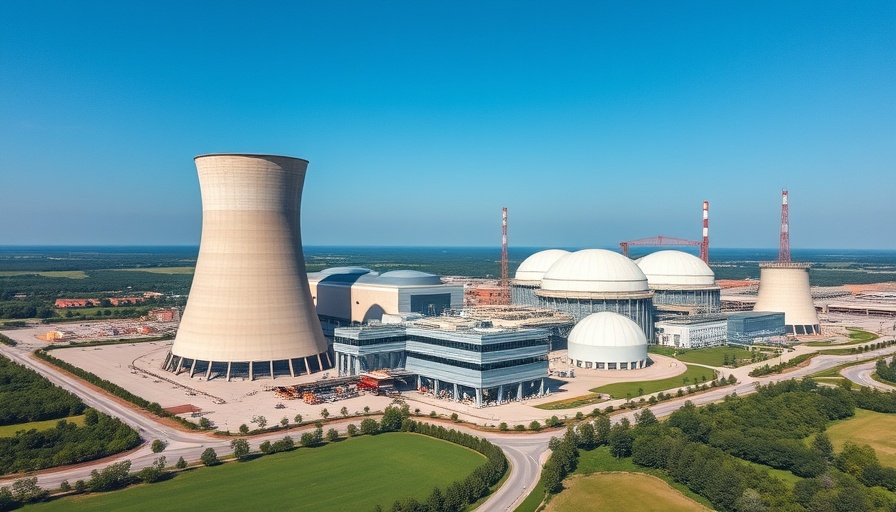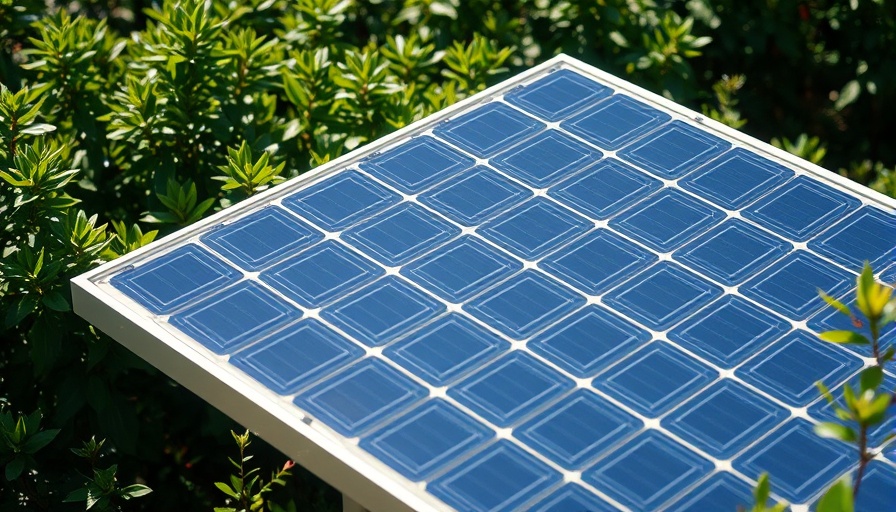
Understanding Carbon Capture and Storage: A Key to Sustainable Living
In an era where climate change is an urgent global issue, Carbon Capture and Storage (CCS) emerges as a beacon of hope. By collecting carbon dioxide (CO₂) from power plants and industrial facilities before it can escape, CCS serves as a crucial strategy for halting emissions that contribute to global warming. For environmentally conscious homeowners, understanding CCS is pivotal as they navigate their sustainability journey.
The Basics of CCS Technologies
There's a variety of technologies used in CCS, each tailored to different needs. The three primary methods include:
Post-combustion Capture: Here, plants burn fossil fuels in air, generating exhaust gas laden with CO₂. Chemical solvents or filters separate this CO₂ from other gases before it’s compressed and transported to underground storage sites.
Pre-combustion Capture: This innovative method converts fuel into a gas mix before combustion. This process ensures a higher CO₂ capture rate, aiding in the transition to cleaner burning processes.
Oxy-fuel Combustion: Oxy-fuel combustion burns fuel in a pure oxygen environment, producing a flue gas that consists almost entirely of CO₂ and water vapor, making it easier to capture and store the CO₂.
The Importance of CCS for Hard-to-Decarbonize Sectors
While renewable energies like solar and wind are witnessing vast adoption, certain industries, particularly steel and cement manufacturing, remain challenging to decarbonize. CCS provides these sectors with a bridge toward sustainable operations, enabling them to lower their carbon footprint significantly.
As a homeowner, advocating for the utilization of CCS can also strengthen your argument for responsible environmental policy in your community. Understanding these dynamics means you’re not just a passive observer in the climate conversation but an active participant.
Addressing the Challenges: What You Need to Know
Despite its promise, scaling up CCS is fraught with challenges. Significant investments, public acceptance, and complex regulatory frameworks are essential for its widespread implementation. Models have shown that without these advancements, many countries will struggle to meet their net-zero target goals.
Homeowners can influence these discussions by educating others about the benefits of CCS and why it should be a part of the green agenda. Understanding and promoting sustainable solutions is an actionable insight that can foster change in your local and global communities.
Recent Insights on CCS Costs and Environmental Risks
Cost considerations also play a vital role in CCS deployment. While initial setups can be expensive, the long-term savings and environmental benefits can outweigh these costs. Moreover, some environmental scientists raise concerns about potential risks related to CO₂ leakage or the long-term integrity of storage sites. By recognizing these risks, homeowners can vocalize support for scientifically-backed, safe practices that promote effective carbon storage.
Steps Homeowners Can Take Today
As a homeowner, you might wonder how you can contribute. Here are a few practical steps:
Advocate for local policies that support CCS technology.
Stay informed about energy solutions and share this knowledge with your community.
Consider your own energy consumption and explore renewable or low-carbon alternatives for your home.
With these steps, you not only enhance your knowledge but also inspire others around you to think critically about their own energy choices.
Embracing a Sustainable Future
As the climate conversation evolves, integrating solutions like CCS into broader sustainability frameworks will be vital. CCS is not merely a stopgap technology but a key player in combating climate change, offering benefits that can ultimately lead to cleaner air and a healthier planet.
In turning this knowledge into action, homeowners can foster a sense of community that’s ready to embrace change. Together, let's take bold steps toward a more sustainable future through informed choices and advocacy for technologies that make a real difference.
 Add Row
Add Row  Add Element
Add Element 


 Add Row
Add Row  Add
Add 


Write A Comment